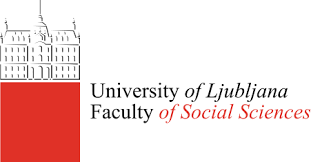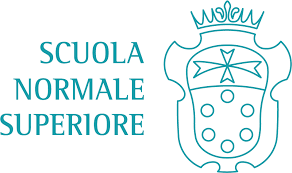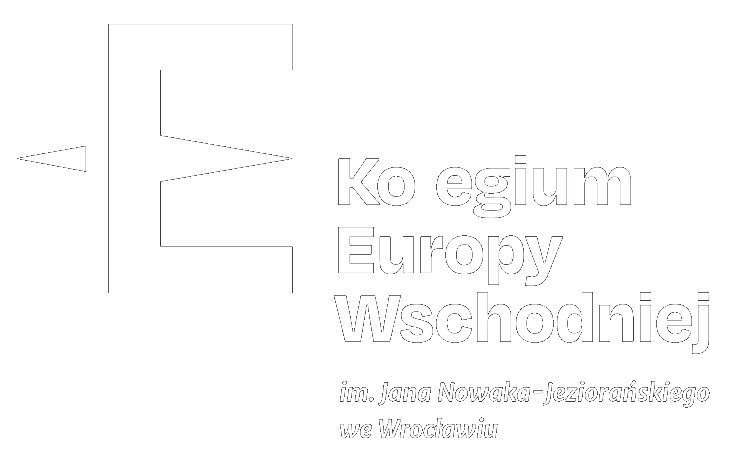Zadaniem projektu jest zmierzenie się z eurosceptycyzmem i nieliberalnymi narracjami na poziomie lokalnym w czterech państwach: Włoszech, Polsce, Słowenii, a także w kandydującej do członkostwa w UE – Macedonii Północnej. Projekt przewiduje połączenie badań i działań „na miejscu” w celu maksymalizacji wpływu na debatę publiczną. Uczestnicy mają zlokalizować w swoich krajach kluczowe punkty zapalne skrajnie prawicowego ekstremizmu. Planowane jest stworzenie jednej międzynarodowej i czterech krajowych sieci zajmujących się problemem eurosceptycyzmu.
Naszymi partnerami są: Scuola Normale Superiore z Florencji, Uniwersytet w Lublanie i lider projektu, EUROTHINK ze Skopje. Projekt jest współfinansowany przez Komisję Europejską w ramach programu „Europa dla obywateli”.
The project «Tackling Illiberal/Eurosceptic Narratives from Below » was implemented between March 2021 and August 2022, with the project partners: Scuola Normale Superiore University – Faculty of Political and Social Sciences – Florence (Italy), University of Ljubljana – Faculty of Social Sciences – Center of International Relations – Ljubljana (Slovenia) and Jan Nowak-Jezioranski College of Eastern Europe (KEW), Wojnowice (Poland), and Eurothink – Center for European Strategies as coordinator.
The goal of the project was to investigate the illiberal narratives and Euroscepticism in four countries in Europe: North Macedonia, Slovenia, Italy and Poland, engage the wider public in the discussion on these topics, as well as give recommendations for improvement and counternarratives.
The project was funded with the support of the European Union under the Programme „Europe for Citizens”.
Project coordinator/Koordynator projektu: Adam Balcer
e-mail: adam.balcer@kew.org.pl
Final report on the implementation of the international project «Tackling Illiberal/Eurosceptic Narratives from Below »
The project had a preparatory meeting and subsequently 9 public events throughout the four countries and online.
Preparatory activities: The activities involved 12 participants.
Location / Dates: Skopje and online, 22-23 April 2021.
Short description: These activities consisted of 5 online sessions in which the project partners gathered to discuss project dynamics and timeline, present the situation regarding illiberalism and Euroscepticism in their own countries and in Europe in general, as well as a research methodology.
Events



Event 1
Stip, North Macedonia
Participation: The event involved 61 citizens, including 3 participants from Italy, 2 participants from Slovenia, 2 participants from Poland, 53 participants from North Macedonia, and one from another EU country.
Location / Dates: The event took place online and at the University of Goce Delcev in Stip, North Macedonia, on 28 September 2021.
Short description: The aim of the event was to present the initial findings of the research conducted by the country teams, and get feedback from the academic and civil society community in Shtip and the rest of North Macedonia (online).
Event 2
Ljubljana, Slovenia
Participation: The event involved 36 citizens, including 3 participants from Italy, 15 participants from Slovenia, 3 participants from Poland, 3 participants from North Macedonia, and 9 citizens from other EU countries.
Location / Dates: The event took place online and at the Faculty of Social Sciences at the University of Ljubljana, Slovenia, on 14 October 2021.
Short description: The aim of the event was to initiate wider discussion on the preliminary findings of the research in front of the academic community of Ljubljana, as well as network with another EU-funded project, “Europeanisation meets democracy from below: The Western Balkans on the search for new European and democratic Momentum (WB2EU)” supported through the Erasmus+ Jean Monnet Networks. The topics of discussion were the state of Euroscepticism in several European countries, with a particular emphasis on the Western Balkans and their relations with the EU. The two initiatives merged the activities and organized a closed session and a public discussion, which took place online and in person.
Event 3
Florence, Italy
Participation: The event involved 30 citizens, including 15 participants from Italy, 2 participants from Slovenia, 4 participants from Poland, and 9 participants from North Macedonia.
Location / Dates: The event took place online and at the Scuola Normale Superiore in Florence, Italy on 2 December 2021.
Short description: The aim of the event was to present the research findings to the academic community in Florence. Special emphasis was put on the methodological aspects of researching Euroscepticism and illiberalism.
Event 4
Warsaw, Poland
Participation: The event involved 55 citizens, including 2 participants from Italy, 7 participants from Slovenia, 31 participants from Poland, 5 participants from North Macedonia, and 3 citizens from other EU countries. Additionally, the event was followed by 66 citizens on Youtube, without registration.
Location / Dates: The event took place online and at the Batory Foundation in Warsaw, Poland, on 17 February 2022.
Short description: The aim of the event was present the research findings to the wider Polish public. The event was organized in cooperation with the Batory Foundation and the European Council of Foreign affairs in Warsaw. Due to the pandemic circumstances, the event was streamed through zoom, Youtube, and Facebook, as well as outlets by media partners: Portal Spraw Zagranicznych, Video-KOD, Polityka, EUROACTIVE.pl and OKO.press. The topics of discussion were the state of Euroscepticism and illiberalism in the four countries, as well as a wider discussion on the Eurosceptic forces around Europe.
Event 5
Tetovo, North Macedonia
Participation: The event involved 88 citizens, including 2 participants from Italy, 2 participants from Slovenia, 2 participants from Poland, 78 participants from North Macedonia, and four from other countries in Europe.
Location / Dates: The event took place online and at the Faculty of Law, University of Tetovo, in North Macedonia, on 10 March, 2022.
Short description: The aim of the event was to present the research findings to the academic community in Tetovo, as well as the vibrant civil sector in the city. Additionaly, there was a closed workshop with selected students from four universities in the country, attended by 25 students, on the development of counternarratives to Euroscepticism.
Event 6
Pisa, Italy
Participation: The event involved 24 citizens, including 11 participants from Italy, 2 participants from Slovenia, 3 participants from Poland, 8 participants from North Macedonia, and one from another European country.
Location / Dates: The event took place online and at the Scuola Normale Superiore in Pisa, Italy, on 1 April 2022.
Short description: The aim of the event was to present the research findings to the academic community in Pisa, as well as discuss Euroscepticism in the time of the War in Ukraine. At the end of the session, there was a dedicated part where students presented their views on counternarratives to Euroscepticism.
Event 7
Ljubljana, Slovenia
Participation: The event involved 35 citizens, including 2 participants from Italy, 28 participants from Slovenia, 2 participants from Poland, and 3 participants from North Macedonia.
Location / Dates: The event took place at the Faculty of Social Sciences, University of Ljubljana, Slovenia, on 6 May 2022.
Short description: The aim of the event was to organize a workshop tailored for students on the development of counternarratives to Euroscepticism. Additionally, a public discussion of the influence of the War in Ukraine on European integration.
Event 8
Wrocław, Poland
Participation: The event involved 107 participants, including 2 participants from Italy, 2 participants from Slovenia, 94 participants from Poland, and 9 participants from North Macedonia.
Location / Dates: The event took place at the Faculty of Social Sciences, University of Wroclaw, Poland, on 2 June 2022.
Short description: The aim of the event was to organize a workshop tailored for students on the development of counternarratives to Euroscepticism, organized in cooperation with the University of Wroclaw. The findings from the workshop were presented to a wider university audience, and a public discussion of the state of Europe in light of the ongoing war was.
Event 9
Wrocław, Poland
Participation: The event involved 25 participants, including 3 participants from Italy, 2 participants from Slovenia, 2 participants from Poland, and 18 participants from North Macedonia.
Location / Dates: The event took place online and at the Faculty of Economics, University of Wroclaw, Poland, on 1 July 2022.
Short description: The aim of the event was to organize a closing conference of the project, evaluate the main findings and conclusions from the research and discussions during events, and seek further avenues for research. It was organized in partnership with the European Information and Data Centre at the Faculty of Economics in Skopje. The event was furthermore supported and opened by the EU Ambassador to North Macedonia, and broadly covered by the media.
The project published a collection of country policy briefs containing the main findings of the research and discussions, including a short comparative study. The project team decided to pursue the cooperation through a book for a reputable academic publisher, extending on the findings here contained.
The project «Tackling Illiberal/Eurosceptic Narratives from Below » was funded with the support of the European Union under the Programme „Europe for Citizens”.






